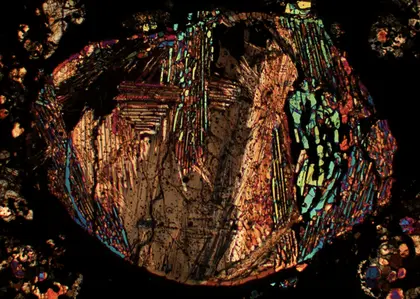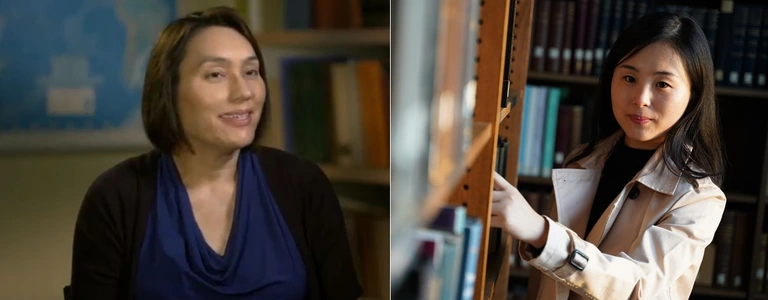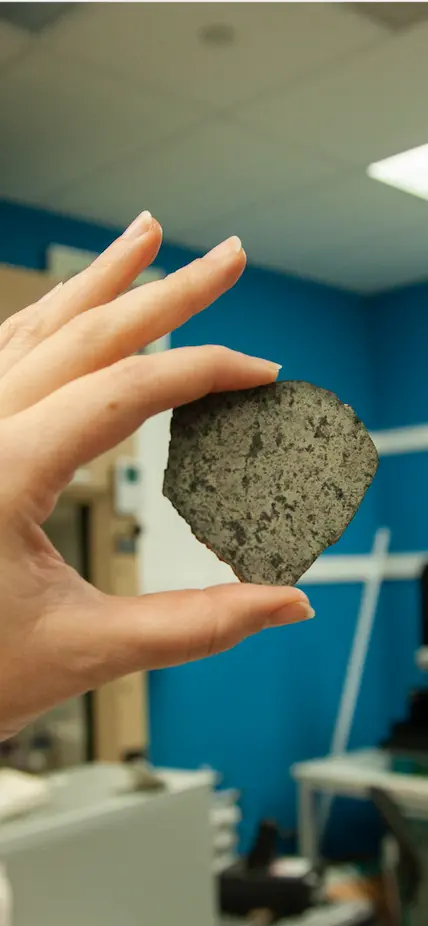
Washington, D.C.—Carnegie Science researchers and postdoctoral alumni will “sweep” three out of four awards at the Meteoritical Society annual meeting next year. Staff Scientist Conel Alexander will receive the society’s top prize, the Leonard Medal, and alumni Sarah Stewart and Nicole Nie will win the Barringer Medal and Nier Prize, respectively.
This international association represents professional scientists, amateurs, and enthusiasts with expertise in and passion for planetary science, particularly meteorite research.
“These prizes demonstrate Carnegie Science’s long leadership in analyzing meteorites—and now also asteroids, thanks to recent sample-return missions—in order to glean information about the formative history of our Solar System and the conditions that enabled life to arise and thrive on Earth,” said Earth and Planets Laboratory Director Michael Walter. “Our division is proud to facilitate the work of researchers like Conel, as well as to serve as a top-tier training ground for early career scientists who go on to make important breakthroughs of their own.”
As a leading cosmochemist, Alexander uses sophisticated tools to study cosmic debris that falls to Earth along with comets and asteroids. His work is revealing the possible origins of Earth’s water, carbon and nitrogen, in addition to details about the primitive material from which our Sun and the planets surrounding it were born. He recently collaborated with other EPL researchers to analyze the first samples returned to Earth from the asteroid Bennu by NASA’s OSIRIS-REx mission.

Alexander will be awarded with the Leonard Medal for his “outstanding original contributions to the science of meteoritics or closely allied fields.”
Stewart was a Carnegie Science postdoc between 2002 and 2003 and has gone on to an illustrious career. Now a professor at Arizona State University, she uses shock wave experiments and theoretical modeling to study the formation and evolution of planetary bodies. Stewart will receive the society’s Barringer Medal, which recognizes outstanding research on impact craters.
Nie, who departed Carnegie Science in 2023, will receive the Nier Prize, which was designed to highlight outstanding work by early career meteoritics researchers. Now an assistant professor at MIT, she uses isotopic measurements to compare Earth’s geochemical signatures to other planetary bodies. She follows other Carnegie Science-affiliated Nier prizewinners, including Larry Nittler, Steve Desch, Fred Ciesla, Francis McCubbin, Aki Takigawa, and Nan Liu
“This class of awardees are a perfect illustration of Carnegie Science’s deep roots in this field and the diversity of disciplinary approaches that our researchers are bringing to the table,” Walter concluded.

